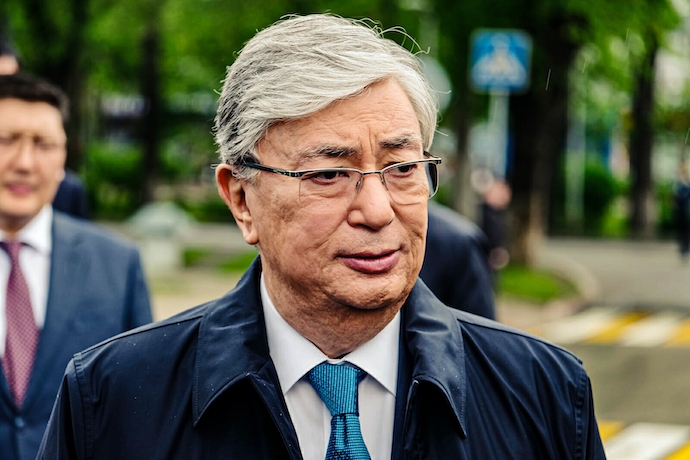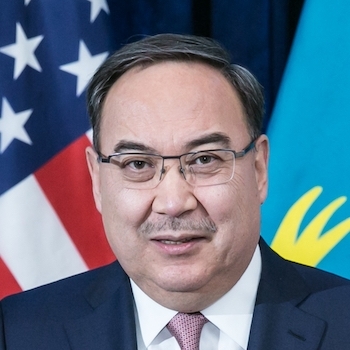
Reforms Under the Shadow of War
As war rages in our region, historical new reforms were introduced in Kazakhstan. Until now, after 30 years of independence from the Soviet Union, its progress toward democracy went dormant. The reforms announced now, however, if implemented, will bring Kazakhstan’s democracy standards in line with – and in some cases above those – of the European Union.
Kassym-Jomart Tokayev has served as president of Kazakhstan for 2 years. After the unrest in January, it became clear that the country needed to introduce fundamental reforms aimed at human rights, openness, welfare, and the fight against corruption.
Moreover, the tragic events in January were seen in part as a consequence of political “stagnation” which required fundamental changes to resolve. The monopoly in the political sphere led to various social issues and the overall degradation of the state under the increased influence of individuals close to the center of power and oligarchic groups.
In his message to the people of Kazakhstan, Tokayev announced reforms impacting almost all of the country’s political institutions. The key powers of the main governmental bodies, such as the presidential office, the parliament, local administrations, as well as the judicial and law enforcement systems will be revised. Laws regarding political parties and the electoral process will also be reformed.
At the same time, President Tokayev clearly emphasized that changes in Kazakhstan should not be in name only. He declared: “Reforms for the sake of reforms are not needed. The time when we were content with achievements only on paper has passed. It is necessary to eradicate the monopoly in the economy and politics, to move from a super-presidential to a presidential model of government.”
According to Tokayev, there will be a significant limitation applied to presidential powers in Kazakhstan. This will entail strengthening the parliament’s authority. A mixed proportional representation voting system will be introduced amidst a broader plan to reform the parliamentarian system.

The entry of new political parties into Kazakhstan’s democratic contest can be expected. Barriers to forming new political parties will be removed. The number of signatures required will be decreased. The registration process will be streamlined.
Tokayev also called for a strong parliament that has checks and balances over the authority of the presidency. He lessened the president’s influence over the parliament by reducing the number of appointed senators from 15 to 10. Of the 10 appointees, half will be recommended by the Assembly of the People of Kazakhstan, a consultative body that develops the policy of friendship and unity between the various nationalities that make up the Kazakh people.
The judicial system of Kazakhstan will also be changed, and a Constitutional Court will be created. Under the new initiative, the president’s appointment of the chairman of the Constitutional Court, and the chairman of the Supreme Judicial Council, will require the consent of the Senate, a move which is aimed at strengthening the independence and transparency of the judiciary.
In addition, according to new legislation, the country’s presidents will be required to terminate any membership in a political party during their term in office. President Tokayev also announced the end of “institutionalized nepotism” which in his words “becomes fertile ground for the flourishing of corruption.” Close relatives of the president will be barred from holding senior positions in government and the quasi-public sector. These measures will further prevent not only corruption but the concentration of power of current and future presidents.
The implementation of these reforms would amount to nothing less than the decentralization of the state’s power in Kazakhstan. This will affect not only the powers of the president, but also the activities of “akims” (governors) of the districts, cities, and rural districts. Moving forward, their work will be evaluated for the most part by the people, not by the president.
Importantly, before the adoption of such a large-scale package of reforms, the authorities of Kazakhstan undertook significant work, heard public opinion, and consulted with public associations, scientists, experts, political parties, and more. These discussions were held openly and publicly.
President Tokayev’s program of political reforms may mark the beginning of a new era in Kazakhstan’s democratic transformation. Due to its geographical proximity to Russia and China, these reforms are particularly significant. A successful reformation will bring stability to the state and the broader region. However, the biggest winner of the reforms would be the Kazakh people. Improved human rights, press freedoms, governance, and a level economic playing field would make the country a better place for today’s Kazakhs and future generations to come.

